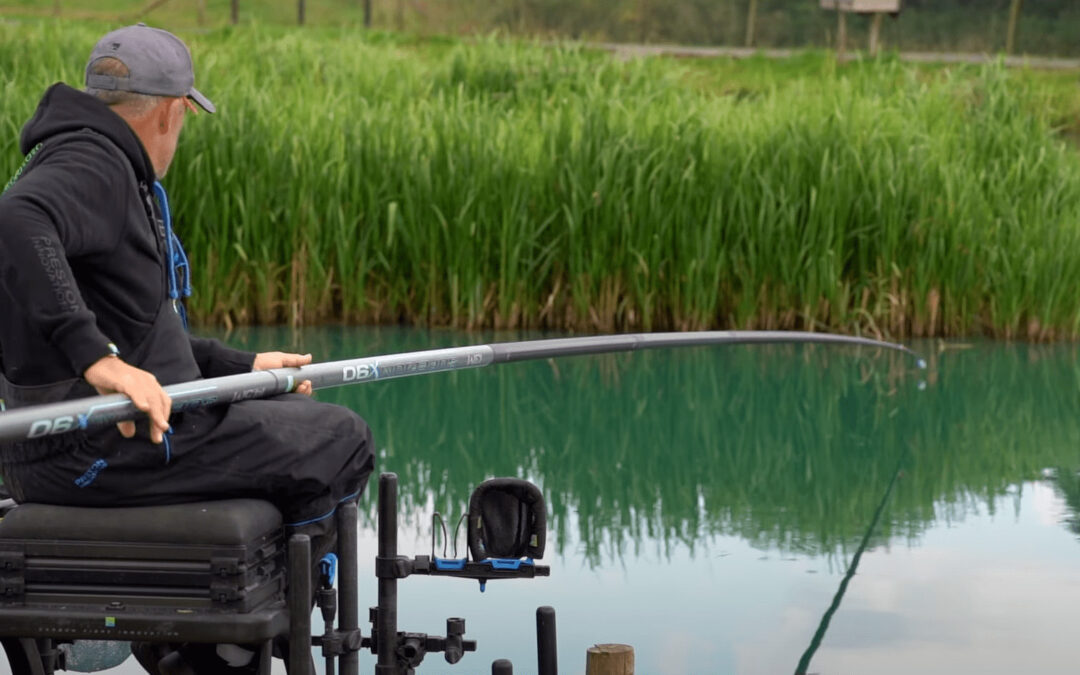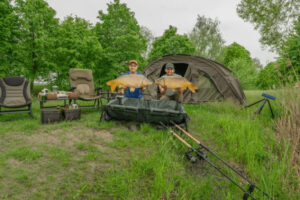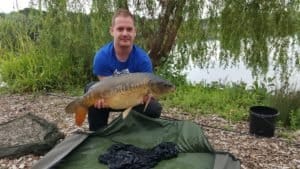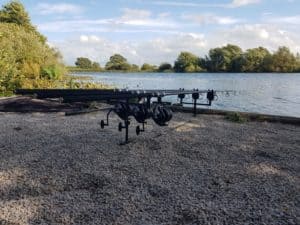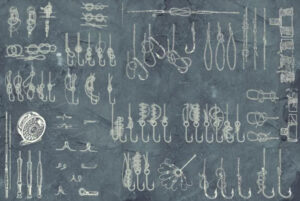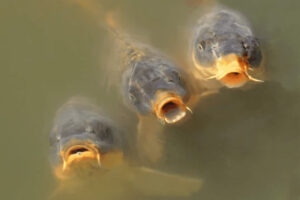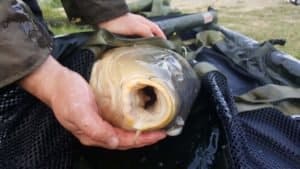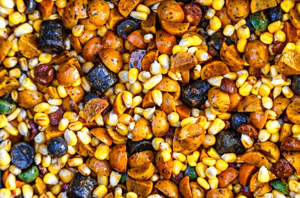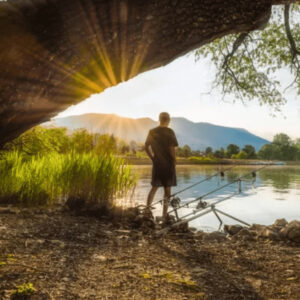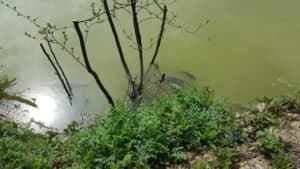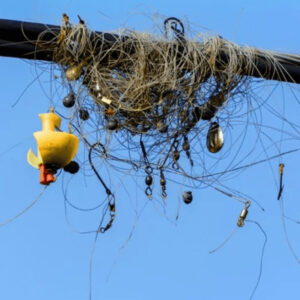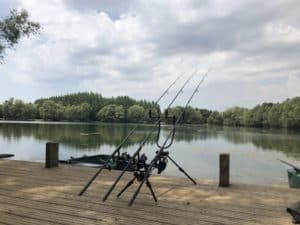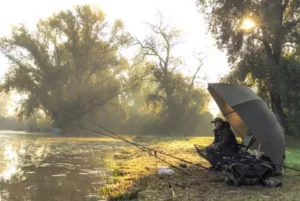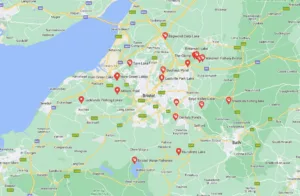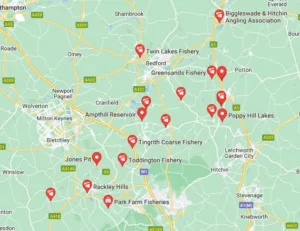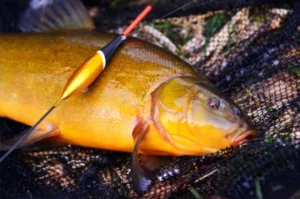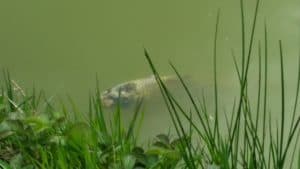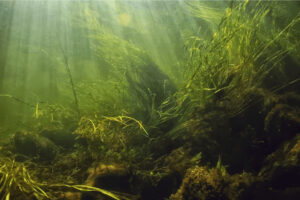What is match fishing?
Match fishing is a form of competitive angling, in which two or more people compete to catch the largest and most carp fish in a given time period.
Match fishing for carp requires specialized equipment and techniques that are designed to target these large fish.
The first step in setting up for match fishing is to select the right rod and reel combination.
Carp rods are typically longer, with fast to extra-fast action and a minimum rating of 12 lbs.
Reels should also be capable of holding large amounts of line, up to 300 yards in some cases, and should have a smooth drag system.
Bait is an important element of match fishing for carp. Boilies, pellet baits and maggots are all common choices, as they can provide more food and attract more carp to the area.
Feeding and bait placement is also important in match fishing.
Carp are often attracted to areas where food is placed and left for them, so it’s important to create a pattern of feeding and bait placement that will bring the carp to the area.
Finally, when targeting carp in match fishing, it’s important to use a variety of rigs and tactics.
Carp can be attracted to different types of rigs and bait presentations, so having an understanding of these techniques is essential for success.
Match fishing for carp is an exciting and rewarding sport. With the right equipment and techniques, anglers can enjoy a competitive edge in their quest to catch these large fish.
What are the rules for match fishing?
Here are some example rules from a local club.
1. Every competitor must attend the match draw, where they will draw a single peg. Once drawn, the angler must report to and fish from the designated peg.
2. A competitor may fish as far as half the distance between his/her peg and the pegs on either side. Where competitors are drawn on opposite banks, their swim will extend to midway across the lake.
The competitor will restrict their activities completely to these boundaries, neither his/her person, his/her tackle, his/her hook-baits or ground-baits may intrude into his/her neighbours swim.
In an extreme situation e.g. snagged tackle or a snagged fish, an angler must seek permission from his/her neighbour/s before moving from his/her designated peg to try and remedy the situation.
3. No competitor shall have live or dead fish in his/her possession before a match. All competitors must submit to a search if requested by a contest official.
4. Before the starting signal no competitor must groundbait or loose feed the swim. Competitors are allowed to wet a line, plumb the depth and test the float, mix and wet groundbait, clear his/her ground of weed or obstructions and position his/her equipment. The use of feeders is prohibited before the starting signal.
5. A competitor must not cause annoyance to, or seek to interfere with another competitor.
6. Competitors are prohibited from using mobile phones during the course of the competition. If a competitor has a problem or medical complaint, they should contact a steward immediately.
7. A competitor shall have in use one rod or pole, one line and one single hook at one time, but may have other rods or poles and tackle assembled for use in position behind him/her, if possible, providing that no such other tackles are baited.
8. No bait shall be introduced with a pole cup or bait dropper attached to an extra rod/pole whilst continuing to fish.
9. A competitor must strike, play and land his/her own fish. Only competitors may feed bait during the contest.
10. Competitors must retain all fish in keep nets which comply with the relevant EA Bye-laws. Please note there are large carp in these waters, so competitors should bring suitable keep nets (and preferably 2 nets to separate carp and silver fish).
11. Live or dead fish may not be allowed as bait. Spinning and artificial lures are prohibited. Local fishery rules also apply (copy attached with match pack sent to team manager).
12. Keep-nets should be dry when arriving to fish as dry nets do not spread disease. Fish must never be handled with gloves or towels.
13. No competitor shall leave his/her peg at any time during the course of the match other than to answer the call of nature and then he/she must not leave his/her baited hook in the water.
14. A competitor must cease fishing at the finishing signal. Should he/she still be playing a fish hooked before the signal is given, he/she will be permitted no more than fifteen (15) minutes after time has been called to land the fish.
15. At the end of the match, competitors must remain at his/her peg, pack up their equipment and wait for the official weighing team to arrive to weigh his/her catch. The scales-man will arrange for assistance with competitors to lift their keep-nets and ensure the safe transfer of fish to the scales. It will be the responsibility of the scales-man to return all live fish to the water after weighing.
16. Any fish suspected of being weighted or any fish considered suspicious by the weighers must be laid before the match organisers and the angler’s weight be not confirmed until a ruling has been obtained.
If stewards recommended the disqualification of a competitor they will weigh his/her fish in case the ruling is not upheld.
17. All catches will be weighed to the nearest quarter of an ounce or ten grams rounded up.
18. Each competitor will be responsible for ensuring the correct weight of their catch is recorded by the Steward and sign the sheet to that effect. In any dispute the decision of the weighers and the organisers will be final.
19. Competitors are responsible for ensuring that their pegs are clear of litter and no competitor may have his/her catch weighed in who has litter lying on the banks of his/her swim.
20. Any angler proved to have been in contravention of these rules will be disqualified.
How is match fishing scored?
Match fishing is typically scored according to the weight of fish caught.
The competitor with the heaviest combined weight of all his/her catches is declared the winner and receives first prize in the competition, followed by those with lesser weights until a last-place finish has been determined.
In some cases, points may be awarded for each species caught or for certain species, such as carp or barbel.
In addition, each fish caught may also be awarded points based on its weight and size relative to other catches in the competition. Points scored will then be tallied at the end of the match to determine the winner.
The number of points given for each catch depends on the type of competition and the particular rules set by the organisers.
In some cases, it may be necessary for competitors to record their catches for scrutiny by a steward or weighmaster during the match. This is usually done with a scorecard so that each fish can be identified accurately at the end of the contest.
Match fishing can be a fun, competitive way to spend time outdoors. It is important to familiarise yourself with the rules and regulations of each particular match in order to have the most enjoyable experience.
How do you start a match fishing?
Before you start match fishing, there are a few things to consider, such as understanding the rules of the competition and making sure you have all the necessary equipment.
First, decide which type of match fishing is right for you. There are different types of matches with their own individual rules and regulations. You should research these before committing to a particular competition.
You will also need to check the local fishing regulations and laws in the area you are fishing so that you do not end up breaking any of them. It is also important to get an angling license if you plan to fish in the UK, as this is a legal requirement.
Once you know the rules, you can start to prepare for the match. Make sure you have all the necessary equipment such as rods, reels, bait, and tackle. You should also make sure that your gear is in good working order and that it has been checked by an expert if possible.
Finally, on the day of the competition, arrive early and find a good spot on the bank. Make sure you prepare your tackle correctly and bait up according to the rules of the competition. This will give you the best chance of catching fish and winning the match.
Can you use a match rod for carp fishing?
You can use a match rod for carp fishing.
Match rods are designed with a fast recovery action which helps to increase the accuracy of your casts and reduce the risk of snagging on obstructions while retrieving your line.
This makes them ideal for carp fishing in many situations.
However, there are some points to consider before using a match rod for carp fishing.
Match rods tend to have lighter test curves which means they can be unsuitable for larger fish and snaggy environments.
If you are intending to target large carp or fish in heavily weeded areas then a heavier, beefier rod would likely be more suitable.
In addition, some match rods may not be suitable for casting larger weights and baits, so check the specifications of your rod carefully before using it for carp fishing.
Overall, if you are looking to target smaller carp in open water or weed-free areas then a match rod can be a great choice.
Just remember to double-check that your rod is suitable for the environment and the size of fish you are targeting.
What bait to use for match fishing?
The bait used for match fishing can vary depending on the type of competition being held and the local regulations.
For most types of match fishing, natural baits such as worms, maggots, or fishmeal pellets will be allowed. In some cases, artificial lures may also be permitted.
When deciding which bait to use, consider the type of fish you are targeting and the water conditions. Different baits will be more effective in different situations.
For example, maggots may be a better choice than worms if you are fishing in still water as they can attract more bites.
Make sure to read the rules of the competition carefully to ensure you are complying with the bait restrictions.
Overall, natural baits such as worms and maggots will often be the best choice for match fishing, but it is worth experimenting to see which baits work best in different conditions.
What rods to use for match fishing?
The best rods for match fishing will depend on the type of competition you are entering and the local regulations.
Generally, match rods should be light and fast actioned with a test curve between 1-2lbs. This is to ensure that they are accurate when casting and can cast lighter baits over long distances.
Fishing rods should also be fitted with quality rings and anti-tangle guides to help reduce the risk of snagging on obstructions when retrieving the line.
When choosing a rod, consider the type of fish you are targeting and the conditions of the water. For example, if you are fishing for larger carp or in snaggy environments then you may need a heavier rod with a test curve of up to 3lbs.
Finally, make sure you read the rules of the competition carefully before selecting your rods, as some competitions may have specific restrictions on which rods can be used.
This will ensure that you are complying with the regulations and giving yourself the best chance of success.
What reels to use for match fishing?
The best reels for match fishing should be lightweight and balanced to ensure smooth operation.
They should also have a high-quality drag system, as this will help you land larger fish quickly and efficiently.
When selecting your reel, consider the type of fish you are targeting and the conditions of the water. For example, if you are targeting carp in weedy areas then a heavy-duty reel may be more suitable than a lightweight one.
In addition, make sure to read the rules of the competition carefully before selecting your reels, as some competitions may have specific restrictions on which reels can be used.
Overall, lightweight and well-balanced reels with a high-quality drag system can be great for match fishing.
Just make sure you consider the type of fish and water conditions before selecting your reel and read the competition rules carefully to ensure that you are complying with them.
What line to use for match fishing?
The type of line you use for match fishing can depend on the regulations of the competition and the type of fish you are targeting.
Generally, a braided mainline is a good choice as it is durable and has low stretch, which makes it easier to detect bites. In addition, braid lines come in a variety of breaking strains
What size hooks to use for match fishing?
The size of hooks you use for match fishing will depend on the type of fish you are targeting and the regulations of the competition.
Generally, smaller hooks are better as they allow you to use lighter baits and achieve more accurate presentations.
For most types of match fishing, hooks in sizes 12-18 are a good choice.
Make sure to read the rules of the competition carefully, as some competitions may have specific restrictions on which hooks can be used.
Overall, smaller hooks are best for match fishing as they allow you to use lighter baits and achieve more accurate presentations. Just make sure you consider the type of fish and regulations before selecting your hooks.
What other equipment is needed for match fishing?
Aside from rods, reels, line, and hooks, there are a few other pieces of equipment that are essential for match fishing.
These include a landing net, keepnet, or unhooking mat (depending on the regulations of the competition), an unhooking tool to help release fish safely, floats or feeders to mark spots in the lake and bait boxes to store your hooks and line.
Furthermore, some anglers may also find a fishing chair or seatbox helpful for comfort while competing.
Overall, there are several pieces of essential equipment needed for match fishing. Make sure you have all of the necessary items before entering a competition to ensure you are prepared and have the best chance of success.
FAQ
What rods should I use for match fishing?
The best rods for match fishing are lightweight and balanced, with a test curve of up to 2.5lbs. If you are fishing in snaggy environments then you may need a heavier rod with a test curve of up to 3lbs. Make sure you read the rules of the competition carefully before selecting your rods.
What reels should I use for match fishing?
The best reels for match fishing should be lightweight and balanced to ensure smooth operation, as well as have a high-quality drag system. Consider the type of fish you are targeting and the conditions of the water when selecting your reel and read the rules of the competition carefully before making your choice.
What line should I use for match fishing?
Generally, a braided mainline is a good choice as it is durable and has low stretch, which makes it easier to detect bites. In addition, braid lines come in a variety of breaking strains and can be used according to the regulations of the competition.
What size hooks should I use for match fishing?
Generally, smaller hooks are better for match fishing as they allow you to use lighter baits and achieve more accurate presentations. For most types of competition, hooks in sizes 12-18 are a good choice. Make sure to read the rules of the competition carefully before selecting your hooks.
What other equipment is needed for match fishing?
Aside from rods, reels, line, and hooks, there are a few other pieces of essential equipment needed for match fishing such as a landing net, keepnet (or unhooking mat), an unhooking tool, floats or feeders to mark spots in the lake, and bait boxes. Furthermore, some anglers may also find a fishing chair or seatbox helpful for comfort while competing.
What baits should I use for match fishing?
The best bait to use will depend on the type of fish you are targeting and the regulations of the competition. Generally, natural baits such as maggots, worms, or sweetcorn are good choices as they are easy to hook onto small hooks and can be used in most competitions. Make sure to read the rules carefully before selecting your bait.
Related Posts
I have made a lot of mistakes during my fishing sessions and don’t want you to make the same mistakes. I’ve learned the hard way over 20 years of fishing most weekends, testing, tweaking, and testing again and now want to help you excel with your carp fishing.
If you need any help, you can reach me at Fishing Again’s Facebook page
Last Updated on February 11, 2024 by Shane

